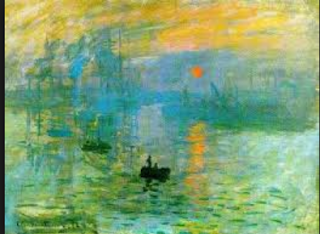Gamelan Music is the
tradition ensemble music from the java and Balinese regions of Indonesia. My
investigation will specifically be looking at Balinese Gamelan Music. This
music culture derives its name from the Javanese word for hammer which his “Gamel”,
as the main method of instrument playing is through hammering instruments. Gamelan
music is often performed at celebrations and in theatre performances or it can
be used as accompaniment for puppet shows, poetry or drama. Music is usually
passed on through oral tradition and not written down. Unlike western
orchestras, the instruments in the ensemble have equal roles, no instrument is
emphasized or given more attention than others, this emphasizes community and
group values over individual(“Gamelan”). Musicians in an
ensemble often play variations of a main melodic line simultaneously and create
a hypnotic a pulsating sound that involves a static repetition of rhythm and
melodies.
Citation: (Singapore Gamelan SingaMurti)
A Gamelan ensemble usually consists of a variety of instruments,
included the rebab, a bowed fiddle, the suling which is a flute, hanging gongs
(gong and kempul), metallophones like the saron, racked gongs called the bonang
and kenong, and hand played drums (Kendhang). The music is made of interlocking
layers, with different instruments playing in each layer, with the rbalungan as
the main melodic line. Gamelan music is tuned to either the Pelog or the
Slendro scale and is cyclic, with different cycles that might be repeated in
each piece.(“Gamelan Music”)


Citations: (Gamelan Instruments) (Gamelan Tonality)
Impressionism
in music was a movement that happened among a variety of composers during the
late 19th century and early 20th century.
As music was an
abstract art form, it was ideal for projection the vague images of
impressionism. Impressionistic music focuses on suggestion and atmosphere and
worked to convey the mood and emotions of the subject rather than create the
image of a detailed picture. Impressionistic composers enjoyed using the
orchestra and the piano. The orchestra could convey a variety of different
tones and colors, whereas, the piano had a damper pedal that allowed vibrating
harmonies to “suspend mid air”. Impressionist
music emphasized on the instrumental timbres, static harmony and used
ornamentation to obscure melodies(“Impressionism”)
. Claude Debussy is considered to be the artist that initiated the impressionistic style, and he has a variety of different impressionistic piano pieces. The prominent musical characteristics of this genre of music include: Modal Influences, Whole-Tone Scale, Pentatonic Scale, Impressionist Harmony, Escaped chords and Parallel Motion. (“Period: Impressionist”)
Citation: (Whole Tone Scales)
. Claude Debussy is considered to be the artist that initiated the impressionistic style, and he has a variety of different impressionistic piano pieces. The prominent musical characteristics of this genre of music include: Modal Influences, Whole-Tone Scale, Pentatonic Scale, Impressionist Harmony, Escaped chords and Parallel Motion. (“Period: Impressionist”)



No comments:
Post a Comment